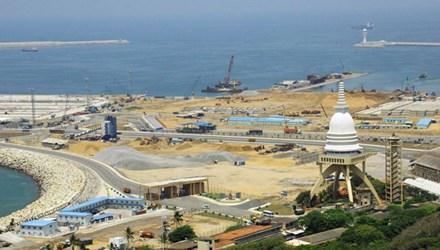
By Tham Soon Seong
PENANG, April 8 – The ongoing crisis in the Sri Lanka , a country with 22 million population could bring about far reaching implications regionally and globally.
Why is this “ little red hot spot in the Indian Ocean and Asia Pacific Basin” is so pertinent to the global political and economic implications ?
Sri Lanka’s economic crises started to surface when it was reported that the country did not have foreign reserves to import writing paper and ink for the education section. Then there were the reports of acute shortage of fuel, foodstuffs and medical supplies that triggered civil disturbances and riots in the country.
The entire Cabinet had resigned, leaving only the President and Prime Minister to run the country; the President had also offered and invited the opposition members of Parliament to jointly run the government of the day. Although a new central bank governor and finance minister have been appointed, economic uncertainties remain, as the country is expected to exhaust its credit line for fuel by end of the month.
A state of emergency was declared and later revoked, while the army had been enlisted to take over the duties of the police in maintain peace and order in the country as protests nationwide continued.
This dire situation could bring about far reaching consequences, affecting not only Sri Lanka’s internal peace and harmony, but also affecting the regional political situation balance; the situation could affect regional political balance.
Firstly, if the shortages of essential goods such as foodstuff, fuel and medical supplies prevail, it could trigger exodus of refugees into neighbouring India; the distance between Sri Lanka and southern India is just a narrow straits. If this situation drags, India would be saddled with the problem of managing the refugees. This may also cause disturbances to power balance in this region, namely India and China might be compelled to intervene, as both countries have massive interest in Sri Lanka.
China has invested massively in Sri Lanka, namely in port development. Sri Lanka reportedly owes China some US$4 billion. China’s interest in the island state extends to its strategic sea route and logistic importance. The US meanwhile might be troubled by this development, considering its ambitions in the Asia Pacific region.
To a lesser extent, Japan and South Korea might also have to “ take some interest “ as the sea route between Indian Ocean , Straits of Malacca and Pacific basin are of vast importance to their trade interest.
The present Russian/Ukraine war might also draw Russia to take keen interest in this troubled region in order to maintain some military balance between these two super powers.
So far, only US Ambassador to Sri Lanka had made some passing remarks, signifying the possible intervention in the pipe line. US cannot leave her interest untouched in this region.
As far as ASEAN countries are concerned, most of them have remained silent and seem to watching from the sideline; only Singapore who seems to be acting outside the ASEAN sphere of influence could be drawn into play. As Singapore has already sanctioned Russian interest, she might therefore look more at US interest.
All in all, 2022 is seeing several hot spots in Asia, the situation in Sri Lanka, Yeman, Burma, now Pakistan, and the super powers could be definitely drawn into possible actions. The military power competition and balance in the Indian Ocean/Pacific basin thus are of utmost importance to US and her allies, Australia, Canada and United Kingdom, forming one block of power caucus and China, India and Russia another block of interest.
Sri Lanka crisis is therefore a flash point that requires concerted global, international attention and intervention to prevent further global chaos and competition.
Based in the prevailing global situation including the Russian-Ukraine war, the Sri Lankan problem looks set to drag on for some months or even years, and that being the case, the year 2022 and beyond could bring about serious problems to global economy and political balance. Smaller economies would suffer in the long run.
Tham Soon Seong from Penang is an active economic and political observer. The views expressed here are that of the author’s and not necessarily that of the Weekly Echo’s.
–WE